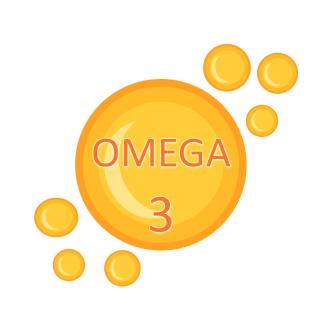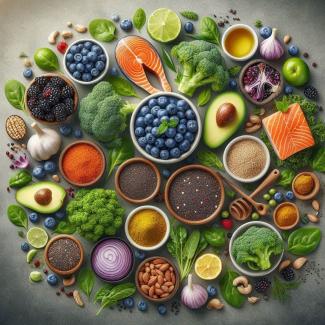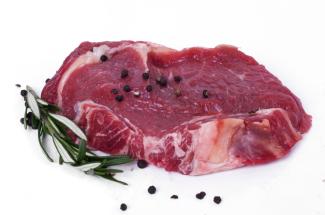
Eggs are widely recognized as a highly nutritious and versatile food. They are a rich source of high-quality protein, essential vitamins, and minerals, all packed in a small, low-calorie package. However, the way you prepare eggs can significantly impact their nutritional value. In this comprehensive guide, we will explore the best methods for boiling or baking eggs to preserve their nutrients, as well as recommendations for how many eggs you should consume daily for optimal health.
Nutritional Composition of Eggs
Eggs are known for their balanced profile of macronutrients and micronutrients. A single large egg contains approximately:
- Calories: 70-80 kcal
- Protein: 6 grams (with all nine essential amino acids)
- Fat: 5 grams (of which 1.6 grams are saturated fats)
- Cholesterol: 186 mg (mostly in the yolk)
- Vitamins: A, D, E, K, B12, B2 (riboflavin), and folate
- Minerals: Iron, phosphorus, selenium, and zinc
- Antioxidants: Lutein and zeaxanthin (important for eye health)
- Choline: Important for brain function and cell structure
Both the yolk and the egg white offer distinct nutritional benefits. While the egg white is almost entirely protein, the yolk is rich in healthy fats, cholesterol, vitamins, and minerals. It is critical to understand that the yolk contains the bulk of the egg's nutrition.
Proper Cooking Methods to Preserve Nutrients
How you cook an egg can either preserve or degrade its nutritional value. Cooking makes certain nutrients more bioavailable (easier to digest and absorb) but can also destroy heat-sensitive vitamins and antioxidants. Below are the best practices for boiling and baking eggs to ensure you get the most nutritional value:
1. Boiling Eggs
Boiling is one of the simplest and most efficient ways to prepare eggs while preserving their nutrients. The key to maintaining maximum nutritional value is controlling the cooking time and temperature.
- Soft-boiled eggs (3-6 minutes): The yolk remains runny, which helps preserve heat-sensitive nutrients like vitamin B12, folate, and antioxidants like lutein and zeaxanthin. Soft boiling also prevents oxidation of the cholesterol in the yolk, maintaining its nutritional integrity.
- Medium-boiled eggs (6-8 minutes): In this method, the yolk becomes firmer but remains slightly soft. While some nutrients may degrade slightly compared to soft-boiled eggs, medium-boiling still retains most of the egg's nutritional profile.
- Hard-boiled eggs (9-12 minutes): In hard-boiled eggs, the yolk is fully cooked. This method is popular for meal prepping as it allows for easy storage and portability. However, longer cooking times at high heat can degrade some heat-sensitive vitamins (e.g., B vitamins) and antioxidants. To minimize nutrient loss, avoid overcooking (beyond 12 minutes) and cool the eggs quickly in ice water.
Nutrient preservation tips for boiling eggs:
- Use fresh eggs for the best results.
- For optimal texture and nutrition, boil eggs at a simmering temperature rather than a rolling boil.
- To prevent overcooking, which can result in the green ring around the yolk (a sign of sulfur and iron reacting), follow the recommended cooking times.
- Cooling eggs in cold water immediately after boiling halts the cooking process, preserving both texture and nutrient content.
2. Baking Eggs
Baking eggs is another excellent way to prepare them without significant nutrient loss. This method is especially good for preparing larger batches, whether for casseroles, quiches, or simple baked eggs in individual ramekins. Here’s how to bake eggs while retaining their nutritional benefits:
- Baked whole eggs (in-shell): Preheat the oven to 325-350°F (160-175°C). Place the eggs on a baking sheet and bake for 25-30 minutes. Baked eggs in-shell maintain a soft, creamy yolk if baked for a shorter time, which helps preserve heat-sensitive nutrients.
- Eggs baked in dishes (e.g., quiches, frittatas): When baking eggs with other ingredients, keep the temperature moderate (350°F or lower) to avoid overcooking. Overcooking leads to a tougher texture and loss of vitamins like B12, folate, and vitamin A. If you are adding vegetables, meats, or cheeses to the dish, be mindful of additional calories and fats, which may affect the overall nutritional value.
Nutrient preservation tips for baking eggs:
- Avoid baking at high temperatures for extended periods, as this can cause a decline in the bioavailability of certain nutrients, particularly the B vitamins.
- Use minimal oil or fat, opting for healthy fats such as olive oil if needed.
- Incorporating nutrient-dense vegetables (e.g., spinach, tomatoes) into baked egg dishes enhances the nutritional profile without compromising the eggs' inherent nutrients.
How Many Eggs Can You Safely Eat Daily?
The question of how many eggs to eat daily has been the subject of much debate, primarily due to concerns over cholesterol. However, more recent research suggests that dietary cholesterol does not significantly impact blood cholesterol levels for most people, and eggs can be part of a healthy diet.
Understanding Cholesterol and Egg Consumption
Eggs contain around 186 mg of cholesterol per large egg, all of which is found in the yolk. For decades, health authorities recommended limiting egg consumption to avoid raising blood cholesterol levels, which are associated with heart disease. However, multiple studies now show that for the majority of people, dietary cholesterol from eggs has minimal effect on blood cholesterol. Instead, saturated fats and trans fats in the diet are more responsible for increasing levels of LDL (the "bad" cholesterol).
For most healthy individuals, consuming 1-3 whole eggs per day is considered safe and even beneficial. Eggs help increase HDL (the "good" cholesterol) levels and provide critical nutrients that support heart, brain, and eye health. They are also incredibly satiating, making them an excellent choice for those looking to manage their weight or calorie intake.
Health Benefits of Eating Eggs Daily:
- Heart Health: Studies indicate that moderate egg consumption (up to 1 egg per day) is not associated with an increased risk of cardiovascular disease in healthy individuals. In fact, eggs may improve heart health by raising HDL cholesterol levels.
- Eye Health: The antioxidants lutein and zeaxanthin, found in the egg yolk, are critical for protecting your eyes from age-related conditions such as cataracts and macular degeneration.
- Brain Health: Eggs are one of the best sources of choline, which is vital for brain function and may reduce the risk of neurodegenerative diseases such as Alzheimer's.
- Muscle Health: Due to their high protein content, eggs are excellent for maintaining and building muscle mass, especially when combined with a balanced exercise routine.
Considerations for Specific Populations:
- People with Diabetes: Research is mixed on egg consumption for those with diabetes. Some studies suggest that eating more than 7 eggs per week could increase the risk of heart disease in individuals with diabetes. If you have diabetes, consult your healthcare provider before making eggs a staple in your diet.
- People with High Cholesterol: If you have been diagnosed with high cholesterol, you may still be able to include eggs in your diet, but it may be wise to limit your intake to 4-6 eggs per week and focus on consuming the egg whites rather than the yolks.
Egg Whites vs. Whole Eggs:
While egg whites are pure protein with no cholesterol or fat, the yolk contains almost all the vitamins and minerals. For those looking to reduce calorie or fat intake while still benefiting from eggs' high-quality protein, combining whole eggs with additional egg whites can be a smart strategy.
Eggs are an excellent source of nutrition, and with proper preparation methods like boiling and baking at moderate temperatures, you can preserve most of their essential nutrients. Eating 1-3 eggs daily is generally safe for most people and can contribute to a healthy, balanced diet. Always consider your unique health profile, and if you have specific dietary concerns (such as diabetes or high cholesterol), consult with a healthcare provider to determine how many eggs are appropriate for you.
By focusing on methods that minimize nutrient loss—such as soft-boiling or baking at lower temperatures—and pairing eggs with nutrient-dense foods, you can make the most of this powerhouse food.






